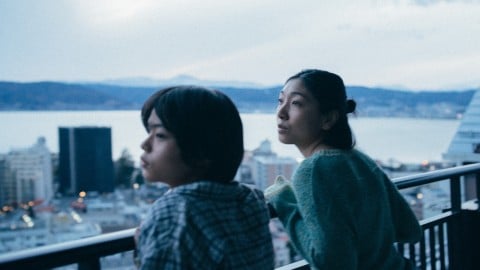The director is back in competition at Cannes with (another) very beautiful film, which ignores the thematic obsession with family and talks, from a multifocal perspective, about fake news, morality, bullying, and Japanese society. Above all, from that border area between childhood and adolescence and between love. Federico Geroni review of the beast.
A fire in the upper floors of a building in a small, quiet Japanese town. A mother and her son, Saori and Minato, are watching from the window. Minato asks, “If a pig’s brain is transplanted into a man, is he still a man, or is he a beast?”
He said differently: Who thinks, h ActionsIn a different way what is its role in society?
question about any Kor Aida Hirokazu He proves it explicitly, in his book monsters. But not the only one.
After this overture, we see Saori worrying more and more about the strange behavior of her son, a son she raised on her own after her husband’s death. However, she became convinced by Minato that her teacher was targeting her. You insult him, you bully him, even get your hands on him. The school, in the face of his protests, acts strangely. Sure, the teacher has to make a formal apology, but something just isn’t quite right. At least for us.
Is Mr. Hori really responsible? Or is Minato bullying, targeting comrade Yuri, who is petite and extravagant, and Hori wants to protect him? Or maybe things are still different?
Start slowly, Kore-eda, let the story it tells, a story that seems strange to us but at the same time simple, very simple, settles well within us. And when you think you have it all figured out, the point of view of the story changes, as in Kurosawa’s Rashomon: It’s no longer for Saori, but for Haori. things are complicated. Even more so when the point of view becomes Minato’s, and even more so when you understand that Monster isn’t a story of abuse or bullying, yes indeed, but not in the way you’d think.
You realize that these things only come after a ruthless critique of the extreme formalism that the Japanese social structure can follow, which imposes silence, silence, lies, and punishment (on oneself and others) in order to ensure that people and institutions are somehow capable of. Save face. If desired, one could go so far as to say that, from some point of view, Monster is talking about fake news, and about society about the emergence of social networks, which is never mentioned.
Finally, understand that Monster is a beautiful story about love and growth in that borderline between childhood and adolescence that can be like walking on a wire suspended in the void. Which can scare more than a monster, or think you are a monster for what you are, and feel it.
Cor ida Works after many years and several films on someone else’s script (by Yuji Sakamotothere is no paternity with Ryūichi, who here signs a posthumous syllable), and this benefits him, leaving—even if not entirely—those familiar territories he’d explored for so long that risked making him repetitive. The script is great, but Kureda’s control of narrative material and story form is even better.
monsters He’s never in a hurry (he’s one Slow burner, some might say), not slowing down too much, ruthless in completing his journey and his story, and its heroes at their destination. It’s a movie shot with an astounding economy of (often beautiful) shots, action, and words, that force the brain into action while almost opening the heart without you even realizing it. Even about feelings and passion, There is never an underline, hint, scene, or word more than is quite enough to cause a spark to leave the screen, destined to unleash little fires that we then kindle ourselves, within ourselves.

“Lifelong beer expert. General travel enthusiast. Social media buff. Zombie maven. Communicator.”



